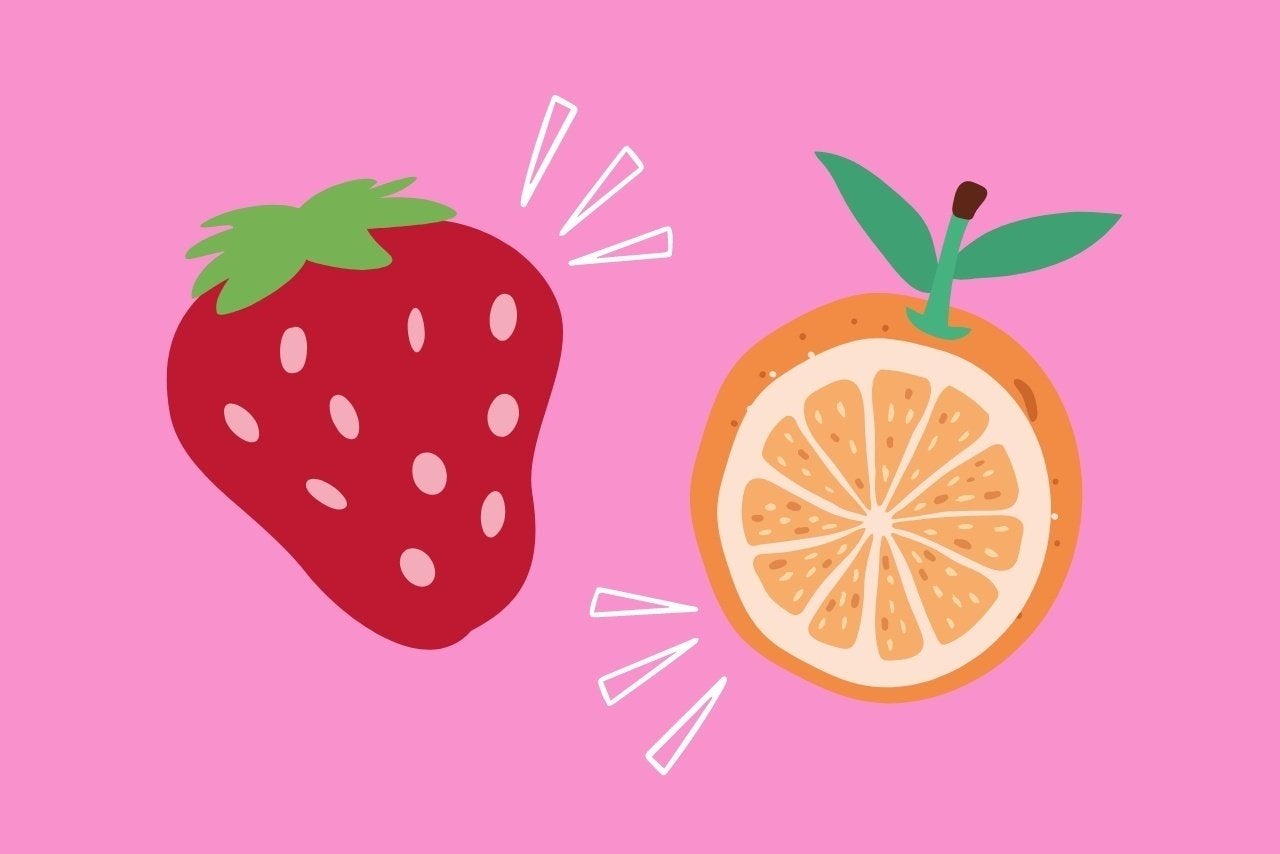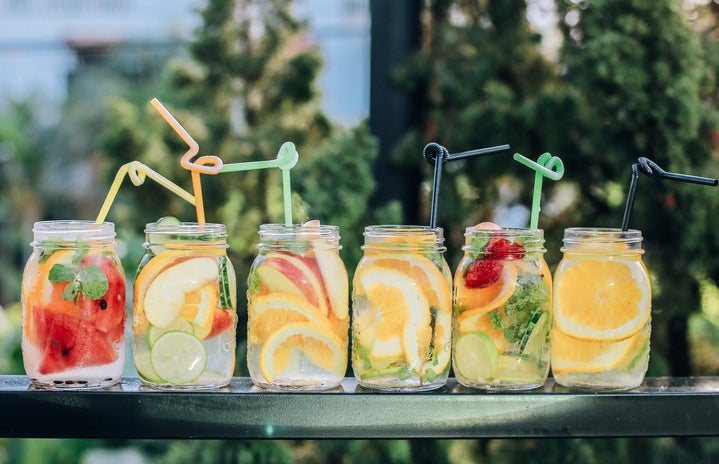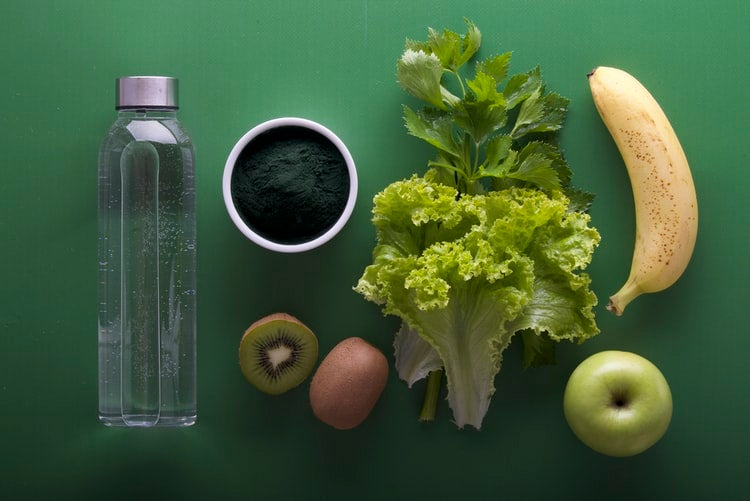As the temperature warms up and the sun starts beaming, picture yourself by some gorgeous body of water this summer. Or perhaps you’re out lounging on a blanket, green grass surrounding you while you attempt to read a good book in an awkward position so the sun isn’t in your eyes. Feeling the high UV heat on your skin, you suddenly grow parched for a bubbly beverage. Do you want a soda? Coca-Cola, Sprite, or Fanta perhaps? No… The only drink that could satisfy you is a Poppi or Olipop.
If there’s one indisputable thing about me, I have an undying love for a little beverage. If I’m running an errand, working on assignments, walking to class, or simply existing, I cannot function without a sweet treat in my hand. Unfortunately, I realized in my junior year of high school that finding a sweet treat that didn’t make me crash became increasingly difficult. How could the treats I loved the most make me feel so bad… toxic much?
My introduction to Olipop
I remember desperately walking the aisles of Whole Foods at the age of 17, setting out to find the perfect soda alternative. I stood in front of the fridges and shifted my gaze from each beverage, analyzing possible contenders. Now and then I’d move out of the way for others who were on a less treacherous journey than me. While they grabbed exactly any old drink, I had to be precise about this. I aimed for a drink that would taste good, be low in sugar, and transport well on the go.
Then, there it was. In a white can, with two illustrated bottles and the branding of “A new kind of soda,” this was the first time I saw an Olipop. It was “Vintage Cola” and it proudly marketed its 2 grams of sugar below the flavor. At the time, I could only see two flavors on display, “Vintage Cola,” and “Classic Rootbeer.” I bought one of each and officially ended my relationship with any sort of real soda. There was a new lover in my life, Olipop.
Olipop, a tasty tonic, is a carbonated soda-alternative drink that now offers 17 current flavors. Honestly, watching their variety of flavors expand through the years has incited such pride within me. Each flavor has a new look and ingredient makeup, mirroring traditional soda flavors. There are ones I previously mentioned, like rootbeer and Coca-Cola, and there’s even a variation of Dr. Pepper!
Olipop adds their twist to each flavor, coining names such as “Classic Rootbeer,” “Vintage Cola,” and “Doctor Goodwin.” However, their brand isn’t limited to the rebranding of pre-existing sodas. Their original flavors include, but are not limited to, “Banana Cream” (one I find surprisingly good) and their two most popular flavors, “Cherry Vanilla” and “Strawberry Vanilla.”
Ben Goodwin, the CEO, and creator of Olipop, had quite the trek until met with Olipop’s success. He dropped out of UC Santa Cruz to make kombucha with a friend. During this period, he realized he wanted to become a “food entrepreneur.” Goodwin had a strong interest in gut health and how it can impact physical and mental health. After his attempts with kombucha, Goodwin met his current business partner, David Lester, and they created their first company, Obi.
Obi wasn’t successful enough to last, and both founders cannot pinpoint a reason why. Personally, though, if you compare the design of Obi’s bottles and Olipop’s cans, you can see a clear difference in the aesthetics. Olipop’s can maximize color, bold font, and cute illustrations while Obi used to have a simpler appearance. The different approaches to marketing what “healthy” looks like accompanied by the growing popularization of interest in gut health are possible reasons why Goodwin and Lester succeeded on their second try.
Olipop’s claim to fame is its prebiotics, which is why each drink claims that it supports digestive health. In simpler words, prebiotics are a fancy word for fiber. Olipop specifically has inulin, which does not break down quickly like other carbohydrates, but instead stays alive long enough to act as food for the good bacteria in your gut. The “pre” in prebiotics highlights how it’s a food for the probiotics of your gut!
Olipop is great for adding some fiber to your diet, and keeping your gut happy, but can also aggravate existing gut issues like IBS. That being said, Olipop is delicious and truly does taste like soda. The benefit of the fiber it uses is it tastes very sweet without adding any sugar. Honestly, I oftentimes forget that the drinks only have around 2-5 grams of sugar. If you’re looking for a soda replacement and you tolerate fiber well, then Olipop is the perfect drink for you.
the story of Poppi
Poppi, on the other hand, focuses more on probiotics than prebiotics. While it still does have prebiotics, it only has 2 grams of fiber versus Olipop’s 9 grams. What makes Poppi special is that it has apple cider vinegar. Apple cider vinegar has been a health craze for a while and with very good reason. It not only helps your digestion, but it also has probiotics because apple cider vinegar is fermented.
This means that Poppi helps your gut by giving you good bacteria in the form of probiotics, as well as food for those good bacteria in the form of prebiotics. In terms of taste, Poppi tastes more like a soda alternative than a direct soda replacement. While it still has flavors tied to traditional sodas, such as “Classic Cola” and their own “Rootbeer,” its overall flavor doesn’t quite mimic that of a real soda. However, that doesn’t diminish the delicious taste of all their other drinks, like “Orange,” “Grape,” or “Watermelon.” As of now, Poppi offers 12 flavors.

It all began in a kitchen when Allison Ellsworth decided she wanted health without harsh flavors. After learning about the health benefits of apple cider vinegar, she aimed to incorporate it into a drink. Unfortunately, apple cider vinegar tastes like, well, vinegar. After different attempts at mixing fruit juices with apple cider vinegar, Ellsworth was able to create a drink that masked the vinegar taste and instead incorporated sweet fruit flavors.
Yet this was not the beginning of Poppi. Much like Goodwin, Ellsworth began with an initial product that would then transform into the cans now popular in every grocery store. Mother was Ellsworth’s first try at a soda alternative. Similar to Goodwell’s Obi, Mother’s design came off very health-orientated, with its incorporation of apple cider vinegar prominent on the bottle.
Ellsworth would sell her bottles of Mother to local farmer’s markets and then take them straight to Shark Tank. After receiving an offer, management rebranded the Mother Drink to Poppi, and it kicked off right at the start of quarantine. They would deliver right to people’s doors and sell hundreds of thousands of dollars in months. People desperately wanted some healthy soda alternatives, and Poppi was happy to provide them.
Poppi’s branding is very similar to Olipop’s, as both distanced themselves a bit from appealing to a health-focused audience and towards brighter and fun appearances. Both companies might have made the realization that to garner support from a larger audience, they had to produce products that already coincided with that audience’s interests. It’s easier to buy a healthy drink when its appearance says, “Look! I look flavorful, bright, and fun,” instead of “I contain fiber and apple cider vinegar.”

Now, you may be wondering, “So which drink is better, Olipop or Poppi?” I may have a boring answer to that, but it’s an honest one. I don’t think either is objectively superior since both have differing advantages. If there’s a day when I feel as if my stomach needs some help with digestion, I pick up an Olipop. But if I want benefits that are allegedly more tied to gut health, such as lowered anxiety or a boost of serotonin, I grab a Poppi. Either way, I’m avoiding a major sugar crash while simultaneously taking care of my health.
Consider this my personal recommendation to start buying treats that not only treat your taste buds but treat your body as well!





